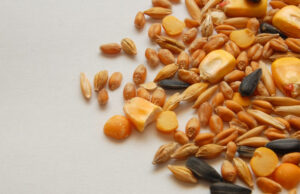
Bulgaria’s parliament has overridden the presidential veto on an agreement to supply Ukraine with used armored personnel carriers (APCs), ratified earlier by parliament, The Sofia Globe reports.
“The Bulgarian National Assembly voted on December 8 to override President Rumen Radev’s veto of the agreement between the Bulgarian Ministry of Interior and the Ukrainian Ministry of Defense on Bulgaria’s supply of used APCs to Ukraine, ratified by parliament last month,” the newspaper said.
The motion to override the veto was passed with 161 votes in favor and 55 against.
The agreement stipulates that Bulgaria will supply APCs and existing weapons, as well as spare parts. The vehicles were purchased in the 1980s and have been mothballed for several decades.
In addition, on December 8, the Bulgarian National Assembly voted overwhelmingly (145 in favor, 55 against) to provide additional military assistance to Ukraine, to allow the use of Bulgarian airspace for training Ukrainian F-16 pilots, and to allow a limited number of Ukrainian military personnel to transit or stay in Bulgaria for training.
Additional military assistance would include Bulgaria providing Ukraine with malfunctioning, obsolete, and surplus air defense missiles. The military assistance also includes allowing Ukrainian infantry or mechanized companies of up to 160 personnel per year to transit or stay in Bulgaria for training.

Bulgaria has authorized licensed imports of Ukrainian sunflower, rapeseed, corn and wheat, according to the website of the Ministry of Agriculture and Food of Bulgaria.
According to the report, during an online meeting on Friday, the Ministers of Agriculture of Bulgaria and Ukraine Kirill Vatev and Nikolay Solsky agreed to implement a licensed export regime for sunflower, rapeseed, corn and wheat seeds and agreed on the details of its application.
“The Ministry of Agriculture and Food has kept its promise to limit imports of these agricultural products as much as possible until November 30, according to the Memorandum signed between the government and the Initiative Committee of Protesting Farmers,” the Bulgarian ministry quoted Minister Vatev as saying.
He emphasized that after this period, the two countries will “strictly monitor that there are no market distortions and that the interests of Bulgarian producers, processors and consumers are not undermined.”
Imports and data exchange between the two countries will continue, the Bulgarian ministry emphasized.
As reported, in November 2023, the Minister of Agrarian Policy of Ukraine Solsky expressed the opinion that Bulgaria, which refrained from imposing a unilateral ban after September 15, could become the first frontline country to lift the ban on Ukrainian agricultural products.
In his opinion, the crop that Bulgaria will be ready to import from Ukraine will be sunflower. In Bulgaria, in the fall of 2023, a compromise was reached between farmers and processors to open the market for imports of Ukrainian sunflower from December 1. By this time, local sunflower oil producers, according to the Bulgarian government, will have to buy back the sunflower seeds produced by farmers, and they will need an additional 1.5 million tons of raw materials.
Earlier, Stepan Kapshuk, head of the industry association Ukroliyaprom, told Interfax-Ukraine that Bulgaria has 16 oil extraction plants that have significantly increased production in the 2022 season and intend to develop sunflower oil exports using sunflower seeds imported from Ukraine.
On September 15, the European Commission announced that it would not extend the restrictions on imports of agricultural products from Ukraine to five neighboring EU countries (Poland, Bulgaria, Hungary, Romania, and Slovakia) under certain conditions that will help avoid a new sharp increase in supplies.
The restrictions were introduced on May 2, 2023, and applied to imports of wheat, rapeseed, sunflower, and corn. These five Eastern European EU member states argued that Ukrainian agricultural products, when imported duty-free into the EU, were being deposited in their countries and were harming their local agricultural sectors.
After the restrictions were lifted, Poland, Hungary, and Slovakia imposed unilateral bans. Poland expanded its list of banned products to include rapeseed cake and meal, as well as corn bran, wheat flour, and derivatives. Hungary extended the list to 24 commodity items.
Ukraine filed a lawsuit with the WTO, accusing Poland, Hungary, and Slovakia of discriminatory treatment of its agricultural products.
Ukraine is currently negotiating a mechanism for licensing exports of Ukrainian agricultural products with mandatory verification in each of the five countries.

Prime Minister Denys Shmyhal has informed President of Ukraine Volodymyr Zelenskyy about talks with representatives of Bulgaria and Romania.
“This area of cross-border cooperation is obviously growing now. I thank our partners. This is the work of the sea corridor, the Danube export cluster, and the trade turnover between our countries in general,” Zelensky said in a video message on Monday.
“With Romania alone, we see the potential for growth to 4 million tons of trade by the end of this year. This is very powerful and supports not only our state, not only jobs in Ukraine, but also in partner countries,” the president said.
Zelenskyy is confident that “we will add Romania, Bulgaria, Moldova, and the entire European Union to our cooperation.”

The FATF (Financial Action Task Force) at its plenary session on October 25-27 in Paris once again ignored Ukraine’s call to include Russia in the list of high-risk jurisdictions – the so-called “black list”.
“The suspension of Russia’s membership remains in force. Following the statements issued since March 2022, the FATF reiterates that all jurisdictions should be vigilant about the ongoing risks associated with circumventing measures taken against the Russian Federation to protect the international financial system,” the final communiqué reiterates the organization’s position on Russia.
The FATF has also updated the “gray” list of countries that are under enhanced monitoring for money laundering and terrorist financing.
The organization removed Albania, Cayman Islands, Jordan and Panama from the gray list and added Bulgaria to it.
The list also includes Barbados, Burkina Faso, Haiti, Gibraltar, the Democratic Republic of the Congo, Yemen, Jamaica, Mali, Mozambique, Nigeria, the United Arab Emirates, Senegal, South Sudan, Syria, Tanzania, Turkey, Uganda, the Philippines and South Africa.
At the same time, the FATF left the blacklist unchanged. It includes countries that require countermeasures, such as the DPRK and Iran, and countries that require enhanced due diligence commensurate with the risks (Myanmar).
Among the main outcomes of the plenary session, the FATF agreed to publish a key report on crowdfunding for terrorist financing. Members also agreed to amend FATF Recommendation 8 to clarify the measures applicable to NPOs. The FATF will also scale up its work on criminalizing terrorist financing in countries (Recommendation 5).
FATF members recognized the need for full and effective implementation of the FATF Standards in all jurisdictions. This includes the analysis and exchange of financial information on terrorist financing networks, as well as the use of financial and law enforcement tools, such as financial sanctions and confiscation, to cut off terrorists from their sources of revenue and weaken the infrastructure that these groups need to achieve their destructive goals. This also includes the designation of identified terrorists and terrorist groups in accordance with relevant UN Security Council resolutions.
In an important milestone, the press release notes, delegates also agreed on a significant set of amendments to the FATF Recommendations that will provide countries with a much more powerful toolkit of measures to deprive criminals of the proceeds of crime. To further improve global asset recovery efforts, the FATF also published a report that sets out recommendations for strengthening the role and use of Asset Recovery and Investigation Networks (ARINs) in investigating transnational money laundering cases.
The FATF also approved reports on illicit financial flows resulting from cyberspace fraud and the misuse of citizenship and residence permits through investment programs, the report said.
Following recent amendments to the beneficial ownership and transparency standards, delegates also agreed to release for public comment an updated risk-based FATF Guidance on Recommendation 25 on beneficial ownership and transparency of legal arrangements.

Greek Minister of Infrastructure and Transport Christos Staikouras has initiated the launch of a railway connection between Greece, Bulgaria, Moldova and Romania to connect with Ukraine, Noi.md reports.
According to the report, the Greek minister proposed to launch the train during a summit in Varna (Bulgaria) on October 9 to diversify trade ties between Mediterranean ports and Ukraine.
The Greek government proposes that trains should run to the Greek ports of Alexandroupolis and Thessaloniki from the ports of Ruse in Bulgaria and Constanta in Romania, and then connections could be established with Moldova and Ukraine. This project can become an alternative option in trade relations between the two countries, strengthening transport links and international freight transportation, Greece believes.
The Greek Minister of Transport sent a letter of intent to European Commissioner for Transport Adina Valean, Bulgarian Minister of Finance Assen Vasilev, Bulgarian Minister of Transport and Communications Georgi Gvozdeykov, and Romanian Minister of Transport and Infrastructure Sorin Grindian.
As reported, the European Union is exploring alternative routes for Ukrainian grain through Italy and Greece.

In Brussels, Ukraine’s Defense Minister Rustem Umerov and Bulgaria’s Defense Minister Todor Tagarev signed a memorandum expanding the scope of bilateral cooperation, including cyber defense, strategic communications, and military and technical support.
“The results of the meeting with my Bulgarian counterpart Todor Tagarev are significant. We have signed a Memorandum expanding the scope of bilateral cooperation, including cyber defense, strategic communications, and military and technical support. The document also lays the foundation for future defense cooperation and military cooperation,” Umerov wrote in X.
In addition, Bulgaria will help with English language courses for future Ukrainian F-16 pilots.
“I am grateful for the important support of Minister Tagarev and the entire Bulgarian people,” the minister added.